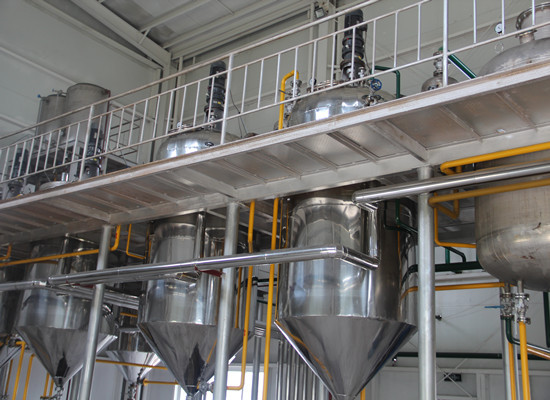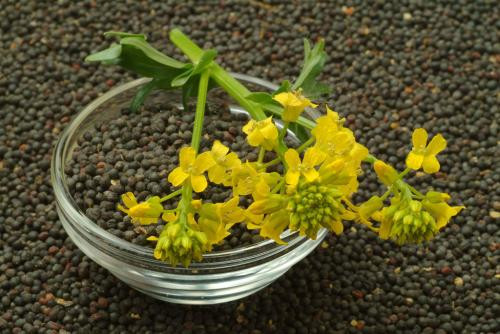Rapeseed Oil Plant

Rapeseed oil plant is our common rapeseed oil, also known as rapeseed oil, coriander oil, is a kind of edible oil extracted from rapeseed. Rapeseed oil is golden or brown in color and has a certain stimulating odor, which Mini calls "green odor". This odor is caused by a certain amount of mustard ring, but rapeseed of superior varieties does not contain this substance. The human body absorbs rapeseed oil at a high rate of 99%. Therefore, the unsaturated fatty acids such as linoleic acid and vitamin E contained in rapeseed oil can be well absorbed by the body, which has a certain effect of softening blood vessels and delaying senility. As the raw material for oil extraction is plant seeds, a stream of oil will contain certain seed phospholipids, which is very important for the development of blood vessels, nerves and human brain. Rapeseed oil contains little or almost no cholesterol, so people who are afraid of cholesterol can safely eat it.

Oil has a certain shelf life. Oil stored for too long should not be eaten. Because it has some "green smell", it is not suitable for direct use in salad vegetables. Oil from high temperature heating chips should be avoided from repeated use. Dry rapeseed oil lacks essential fatty acids such as oleic acid, and its composition is unbalanced. Its nutritional value is slightly lower than that of ordinary vegetable oil. Therefore, it is advisable to eat less rapeseed oil under certain conditions. Rapeseed oil is a kind of oil with high erucic acid content. Whether it can cause myocardial fat deposition and damage the heart is still controversial. Patients with coronary heart disease and hypertension should pay attention to eating less.

Rapeseed oil plant is our common rapeseed oil, also known as rapeseed oil and coriander oil. It is extracted from rapeseed. It is one of the main edible oils in China. The color of rapeseed oil is golden or brown, which has a certain stimulating odor. It is called "green odor" in folk. This odor is caused by a certain amount of mustard ring, but rapeseed of superior varieties does not contain this substance.It can be divided into pressed rapeseed oil and leached rapeseed oil. The rapeseed oil pressed on site can be divided into GM rapeseed oil and non-GM rapeseed oil according to whether the raw material is GM or not. From the erucic acid content of fatty acid composition, it can be divided into general rapeseed oil and low erucic acid rapeseed oil.
In terms of nutritional value, the digestibility and absorptivity of rapeseed oil can reach 99%, and it has gallbladder-promoting function. Rapeseed ketone can also be metabolized normally by human body when the liver is in pathological state. However, rapeseed oil lacks essential fatty acids such as linoleic acid, and its fatty acid composition is unbalanced, so its nutritional value is lower than that of vegetable oil. In addition, rapeseed oil contains a large number of erucic acid and sinaposide and other substances, which are generally considered harmful to human growth and development. If it can be eaten with good edible oil rich in linoleic acid, its nutritional value will be improved.
Oleic acid, linoleic acid. Oleic acid and linoleic acid are essential fatty acids for animals and humans. They can be synthesized from wood themselves. They can only be absorbed from food. Linoleic acid is particularly important, it is a component of cell tissue, the structure of mitochondria and cell membrane, the growth of new tissue, the repair of injured tissue need. Linolenic acid is a highly unsaturated fatty acid, which accounts for about one-tenth of the composition of rapeseed oil. Linolenic acid is easily oxidized in contact with gas, light, heat and temperature.
China's rapeseed market opened earlier. At present, state-owned, private, foreign-funded oil plants and individual oil dealers are free to purchase and sell and compete completely. Some grass-roots grain administrations are commissioned by large oil factories and are also involved in acquisition and short-term storage. Overall, there are several characteristics of rapeseed processing industry in China.First, rapeseed supply time is short, acquisition, processing and sales time is relatively concentrated. Because rapeseed production is seasonal in China, rapeseed processing enterprises generally concentrate on processing rapeseed in June-September. Most small factories only produce rapeseed for 2-3 months, and only large rapeseed processing enterprises can maintain annual production.Second, the distribution of rapeseed processing industry in China is scattered, and the processing plants are small in scale and large in quantity. Different from the trend of large-scale and group development of soybean processing capacity in China, rapeseed processing enterprises in China have developed slowly in recent years, and still maintain the characteristics of large number, small scale, outdated equipment and backward processing technology.Third, the profit of rapeseed oil processing enterprises is small, and many enterprises have low risk resistance ability. In the face of the huge rapeseed processing capacity in China, with the serious reduction of domestic rapeseed supply, rapeseed processing enterprises are facing serious difficulties in raw material supply, especially in small and medium-sized oil factories which rely solely on rapeseed processing for a long time.